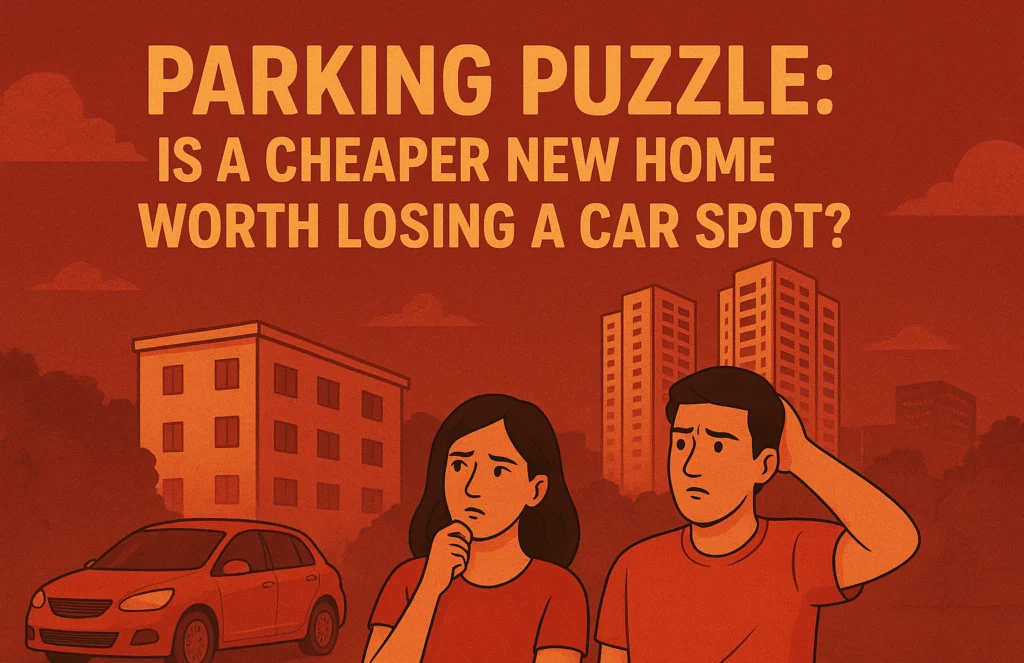In major, rapidly expanding cities, especially those with limited space like Mumbai, the push for urban redevelopment is changing the skyline. Old, low-rise buildings are being replaced by modern high-rises, offering newer, better apartments. This sounds like a win for homebuyers, but a growing trend is posing a unique dilemma, developers are selling brand-new apartments without an assured parking space.
This situation puts buyers in a tough spot, do you save money now on a cheaper flat, or invest more for the crucial convenience of a designated spot for your vehicle?
Why does this happen in new buildings?
The issue primarily stems from space constraints on small plots of land. When an older building on a tiny piece of land is redeveloped, the developer often maximizes the number of residential units to make the project financially viable.
Even with modern design, the site may simply not be large enough to provide one parking spot for every flat. Local municipal bodies often recognize this reality, for smaller plots, they may allow developers to provide fewer parking spaces than the total number of apartments, as long as they adhere to specific regulations (e.g., one parking spot for every two or four smaller flats).
Because of this, the remaining units must be sold without parking. Crucially, this is often not a violation of building rules, the developer is simply working within the limits set by the site and the law and they are usually upfront about the lack of parking from the start.
The temptation of a lower price
The primary appeal of these parking-free flats is in the discount. Apartments in buildings on smaller plots, sold without a dedicated car spot, can be priced anywhere from 10% to 15% lower than comparable units in the same area that do include parking.
For buyers on a strict budget, this saving is significant. It could make the difference between qualifying for a mortgage and homeownership in a desirable location. The immediate financial benefit is clear and compelling, particularly for those who don’t currently own a car or believe they can manage without one.
Weighing the long-term cost
The initial savings are attractive, but real estate experts strongly advise buyers to consider the long-term implications of forgoing a parking space.
- Impact on resale value: The biggest drawback is the effect on the apartment’s resale potential. In a competitive market, a lack of parking can be a major dealbreaker for many future buyers. The pool of interested parties shrinks significantly, forcing you to potentially sell the property at a steeper discount than the one you initially received. The value you save today may be lost and then some when you eventually sell.
- Future needs: Even if you don’t own a car today, you might purchase one in five or ten years. Having to scramble for street parking or pay exorbitant monthly fees for a spot elsewhere is a huge inconvenience.
- Rental income opportunity: If you buy a flat with a parking space and don’t need it, you can often rent it out to a neighbour or another resident in the society who missed out. This generates a small but steady stream of passive income, which can help offset your maintenance costs.
Choosing an apartment without parking means betting that your need for a car or your future buyer’s need will never materialize. While the 10-15% initial saving is appealing, most professionals agree that the assurance and flexibility a dedicated parking space provides both for personal use and investment value make it a worthy, necessary expenditure. It’s an amenity that safeguards the future value of your most important investment.
Also Read – Mumbai’s Housing Future: Redevelopment Set to Unlock Over 44,000 New Homes
Disclaimer: This article provides general real estate insights and is not financial or legal advice. Consult a qualified professional before making any property investment decision.


Write Your Comment